Related Research Articles
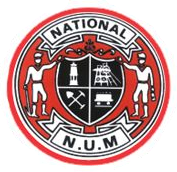
The National Union of Mineworkers (NUM) is a trade union for coal miners in Great Britain, formed in 1945 from the Miners' Federation of Great Britain (MFGB). The NUM took part in three national miners' strikes, in 1972, 1974 and 1984–85. Following the 1984–85 strike, and the subsequent closure of most of Britain's coal mines, it became a much smaller union. It had around 170,000 members when Arthur Scargill became leader in 1981, a figure which had fallen in 2023 to an active membership of 82.
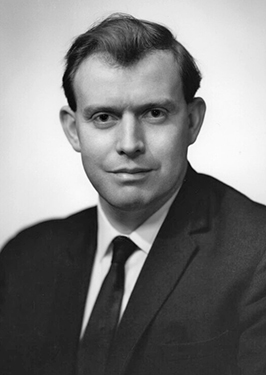
Eric Graham Varley, Baron Varley, was a British Labour Party politician and cabinet minister on the right-wing of the party. He was the Member of Parliament for Chesterfield from 1964 to 1984.
The Union of Democratic Mineworkers (UDM) was a British trade union for coal miners based in Nottinghamshire, England, established in 1985, following the 1984–85 miners' strike, when the Nottinghamshire Area of the National Union of Mineworkers (NUM) was involved in a number of disputes with the National Executive Committee that led to a split from the NUM. In ballots on joining with Nottinghamshire in a new union, the South Derbyshire Area of the NUM voted in favour by 51% and the Colliery Workers and Allied Trades Association by almost 100%.
Peter Heathfield was a British trade unionist who was general secretary of the National Union of Mineworkers (NUM) between 1984 and 1992, including the period of the miners' strike of 1984/85.
Joseph Gormley, Baron Gormley, OBE was President of the National Union of Mineworkers from 1971 to 1982, and a Labour peer.
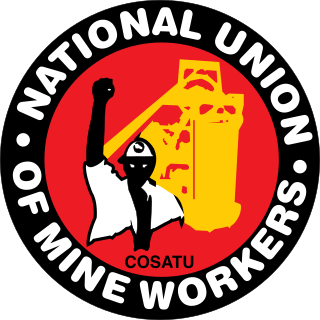
The National Union of Mineworkers (NUM) is a mainly mining industry related trade union, an organisation of workers with common goals through organised labour, in South Africa. With a membership of 300,000 as of 2014, it is the largest affiliate of the Congress of South African Trade Unions (COSATU).

Bethuel Middleton Kitchen was a nineteenth-century politician from Virginia and West Virginia.
Lawrence Daly was a coal miner, trade unionist and political activist.
Ebenezer Edwards was a trade unionist and politician in Britain.

Samson Gwede Mantashe is a South African politician and former trade unionist. He is the Minister of Mineral Resources and Energy, with the function of Minister of Electricity and Energy having been accorded to Kgosientsho Ramokgopa. Mantashe was Minister of Mineral Resources and Energy from May 2019 to June 2024, and Minister of Mineral Resources from February 2018 to May 2019. He is also serving his second term as the national chairperson of the African National Congress (ANC).

Ian Lavery is a British Labour Party politician who has served as Member of Parliament (MP) for Blyth and Ashington from 2024. He was previously the MP for Wansbeck from 2010 to 2024. Lavery served as the chair of the Labour Party under Jeremy Corbyn from 2017 to 2020, and was the president of the National Union of Mineworkers from 2002 to 2010. He is a member of the Socialist Campaign Group parliamentary caucus.
James Edward Mortimer was a British trade unionist and the Labour Party General Secretary between 1982 and 1985.
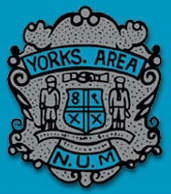
The Yorkshire Miners' Association was a British trade union. It is now an integral part of the National Union of Mineworkers (NUM).
William Ernest Jones, CBE was a British trade unionist.
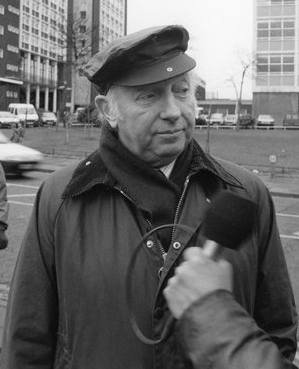
Arthur Scargill is a British trade unionist who was President of the National Union of Mineworkers (NUM) from 1982 to 2002. He is best known for leading the 1984–1985 UK miners' strike, a major event in the history of the British labour movement.
The 1969 United Kingdom miners' strike was an unofficial strike that involved 140 of the 307 collieries owned by the National Coal Board, including all collieries in the Yorkshire area. The strike began on 13 October 1969 and lasted for roughly two weeks, with some pits returning to work before others. The NCB lost £15 million and 2.5 million tonnes of coal as a result of the strike.
Sammy Thompson was a British trade unionist.
Nicky Wilson is a British trade unionist.
Edward Jones was a Welsh trade union leader.
Msokoli Frans Baleni is a South African businessman and former trade unionist who was general secretary of the National Union of Mineworkers between 2006 and 2015. Since 2007, he has been a member of the Central Committee of the South African Communist Party.
References
- ↑ List of NUM Officials, accessed 15 November 2013 http://www.num.org.uk/page/Contacts
- ↑ "Miners suspend planned stoppages", BBC News , 10 March 2004